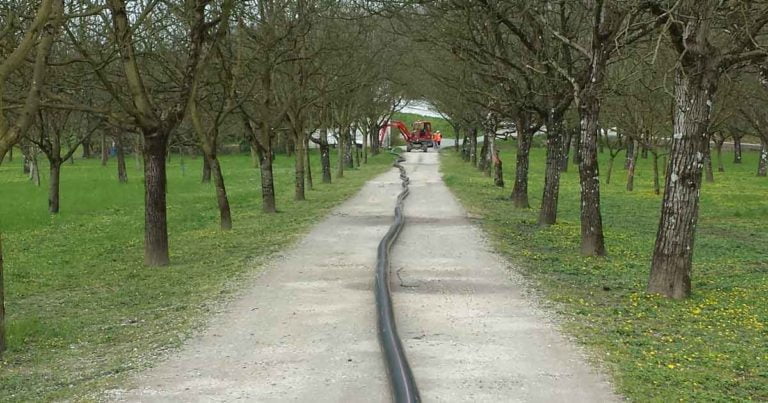To minimise our impact on the environment, we at Elydan Group RYB have opted to use modern, high performance materials (polyethylene and polypropylene) that provide numerous technical advantages for your networks. These materials are sustainable, have good green credentials, and play a significant role in improving and optimising their environmental impact throughout their life-cycle, and thereby reducing their carbon footprint.
When put to work, the lightness of the polyethylene pipes means fewer machines are needed on site and substantial fuel savings can be made on transport and handling.
Our PE100 pipes are self-locking, eliminating the need for expensive, purpose-built locking unions and concrete connections for changing direction – meaning fewer materials to transport and install – and all thanks to polyethylene.
Because they are flexible, PE pipes have the ability to deform without splitting and compensate for ground movements throughout their service lives without causing leaks. This also means that the pipes can be packaged in long lengths in coils and on drums, thus cutting down on the number of unions while simultaneously speeding up laying operations.
Under operational conditions, as PE100 pipelines have welded unions and no seals, the leakage rate is reduced to zero, thus conserving the valuable resource being transported. The longevity of PE pipelines is also an important factor: PE100 pipes have a design life of over 100 years!
At end of life, polythene and polypropylene networks are 100% recyclable and return the same amount of energy that went into their production when recycled.
More details on the advantages of polyethylene pipelines can be found in the following article: PE versus fonte [PE vs Cast Iron].
